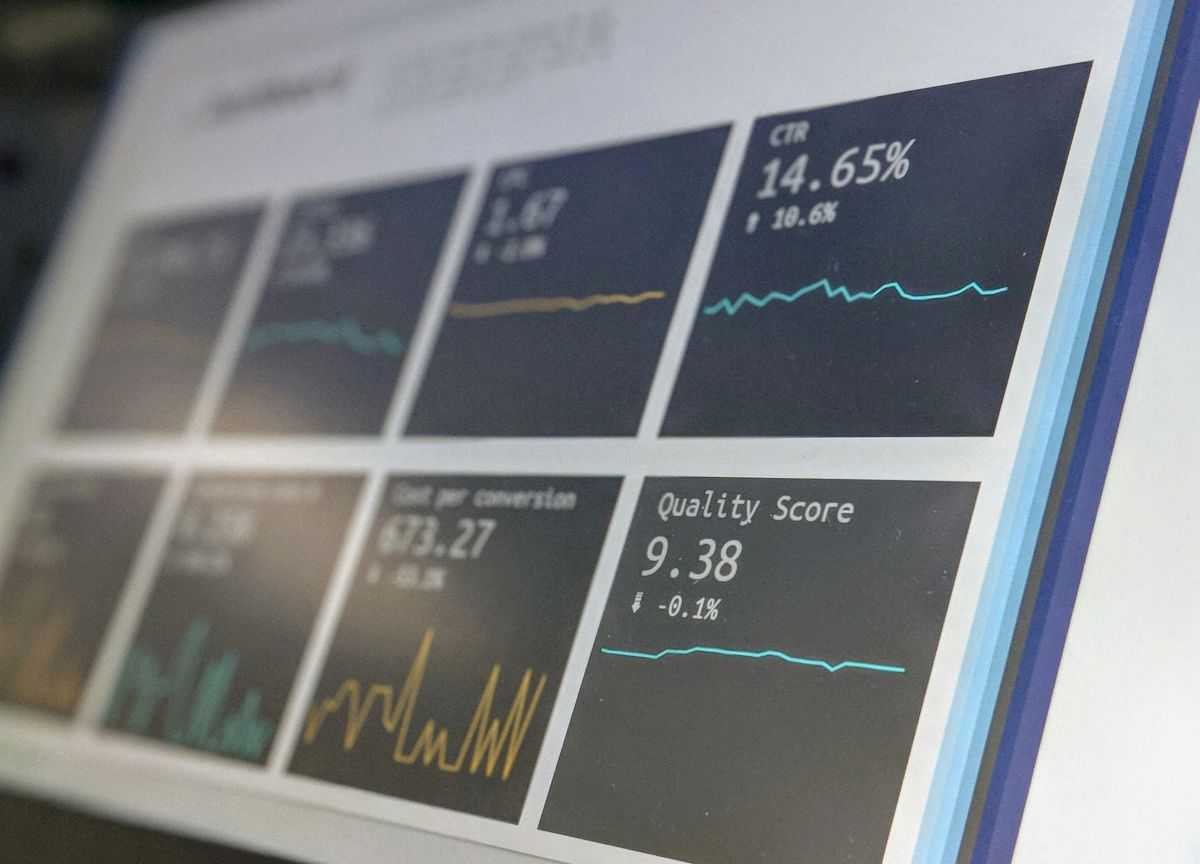How AI is Redefining Digital Marketing: 5 Powerful Trends
In today’s rapidly evolving digital landscape, artificial intelligence (AI) is not just a buzzword; it’s a game-changer. The integration of AI into digital marketing has revolutionized how businesses approach their campaigns, allowing them to deliver personalized experiences, improve decision-making, and automate time-consuming tasks. As companies strive to stay ahead of their competition, AI-driven tools and technologies are becoming indispensable in optimizing digital marketing strategies.
AI technologies enable marketers to leverage data more effectively, make faster decisions, and create experiences that resonate deeply with their audiences. By transforming data into actionable insights and automating tedious processes, AI is enhancing the efficiency of digital marketing campaigns. Below, we’ll explore five key ways AI is reshaping the digital marketing landscape, helping businesses achieve greater success in reaching their target markets.
1. Enhanced Personalization
Personalization has always been a cornerstone of successful marketing, but AI is taking it to new heights. Today, AI is used to analyze vast amounts of consumer data, enabling marketers to tailor their messages in real-time based on individual preferences, behaviors, and browsing history. This personalized approach is crucial in a world where consumers expect brands to understand their needs and deliver relevant content at the right time.
AI-powered tools can help businesses craft highly targeted campaigns by analyzing data points such as demographic details, past purchasing behavior, and even social media activity. With this information, companies can create personalized email campaigns, recommend products, and serve dynamic ads that are more likely to resonate with each consumer. This level of personalization helps to build stronger connections with customers, increasing engagement and conversion rates.
In addition to targeting individual consumers, AI also allows for the creation of customized experiences across various channels. For example, AI can help optimize website content and design based on real-time data, ensuring that visitors receive a user experience tailored to their specific interests.
2. Predictive Analytics for Better Decision Making
One of AI’s most powerful capabilities is its ability to analyze data and predict future trends and behaviors. Predictive analytics uses historical data, algorithms, and machine learning models to identify patterns that can help businesses forecast outcomes, such as customer behavior, sales trends, and even potential churn.
By implementing AI-driven predictive analytics, digital marketers can make more informed decisions about their campaigns. For example, marketers can predict which customers are most likely to make a purchase, which products they’re interested in, and when they are most likely to buy. This enables businesses to allocate their marketing resources more effectively, ensuring that they are targeting the right audience with the right message at the optimal time.
Predictive analytics also allows for smarter budget allocation by identifying which marketing channels are most likely to generate the best return on investment (ROI). By forecasting outcomes, AI helps marketers create data-driven strategies that maximize results and minimize wasted spending.
3. Automating Customer Interactions with Chatbots
Chatbots are one of the most visible ways AI is transforming customer service and engagement. These AI-powered virtual assistants can handle a variety of tasks, from answering customer inquiries to processing transactions and even providing personalized recommendations. As a result, businesses can offer round-the-clock customer service without the need for a human representative to be present at all times.
AI chatbots use natural language processing (NLP) to understand and respond to customer queries in real-time. They can provide accurate, consistent answers to frequently asked questions, direct customers to the right products, and even assist with troubleshooting issues. By automating these tasks, businesses can free up their customer support teams to focus on more complex issues while improving the overall customer experience.
Moreover, chatbots can be integrated across multiple platforms, including websites, social media channels, and messaging apps, ensuring a seamless and consistent customer journey. The ability to interact with customers in real-time, combined with personalized responses, significantly enhances customer satisfaction and drives brand loyalty.
4. Improved Ad Targeting with Machine Learning
Advertising is another area where AI is having a profound impact. Traditional methods of ad targeting often rely on basic demographics such as age, gender, and location. However, AI takes targeting to a whole new level by analyzing a vast array of data to determine the most effective ad placements for each individual user.
Through machine learning algorithms, AI can analyze user behavior, preferences, and past interactions with ads to predict which ads will be most effective for each person. This not only increases the chances of engagement but also maximizes the return on ad spend by showing the right ads to the right people at the right time.
For example, AI can help businesses create dynamic ads that adjust in real-time based on a user’s behavior. If a user has previously shown interest in a particular product, the ad can be tailored to highlight that product again, potentially driving them further down the sales funnel. This kind of precision in targeting increases conversion rates and ensures that marketing efforts are more efficient.
5. Content Creation and Optimization
AI is also making significant strides in the content creation and optimization process. While AI-generated content isn’t yet fully capable of replacing human creativity, it can certainly help marketers streamline their content creation process and optimize it for better performance.
AI tools like natural language generation (NLG) software can analyze existing content and produce written pieces that are optimized for search engines, audience engagement, and readability. By automating the generation of blog posts, social media updates, and other marketing materials, businesses can save time and resources while maintaining a consistent brand voice.
Furthermore, AI can assist with content optimization by analyzing user interactions with content and providing insights into what resonates with different segments of the audience. Based on this data, AI tools can suggest changes to headlines, keywords, or even the structure of content to make it more engaging and shareable. As a result, businesses can improve their content’s performance and drive better results from their marketing campaigns.
Embrace AI for a Competitive Edge
As we’ve seen, AI is reshaping digital marketing in profound ways, from enabling more personalized customer experiences to automating key processes and providing actionable insights for better decision-making. The capabilities of AI allow businesses to reach their target audiences more effectively, improve engagement, and optimize their marketing strategies for maximum impact.
As AI continues to evolve, marketers who embrace these technologies will have a distinct advantage over their competitors. Whether it's using predictive analytics to forecast trends, deploying chatbots for customer support, or leveraging machine learning to improve ad targeting, the opportunities for AI-driven success are vast.
For industry leaders looking to stay ahead of the curve, WorkForce Institute offers an accelerated digital marketing course online that can help upskill or reskill students in modern digital marketing best practices. By participating in this bootcamp, marketers will gain the expertise and hands-on experience needed to harness AI and other emerging technologies to drive successful marketing campaigns.
If you're ready to advance your career or organization with cutting-edge digital marketing knowledge, WorkForce Institute is here to help you every step of the way.


